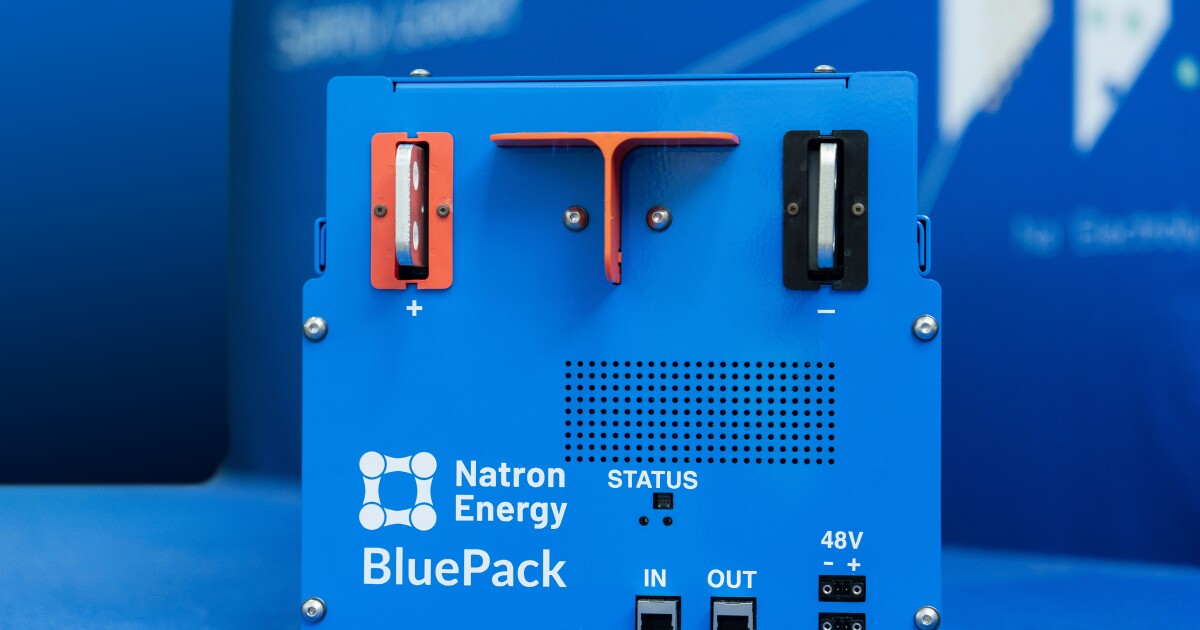It’s so rare to actually see a new battery tech exit the lab and enter production. Always seems like there’s 10,000 new up and coming breakthroughs in battery technology, but none ever leave the workbench.
While Na-ion batteries don’t have the energy density of Li-ion, they make up for it with many other factors such as more abundant source materials, increased safety, higher charge/discharge currents, and increased number of charge cycles.
Slashdot summary:
Not only is sodium somewhere between 500 to 1,000 times more abundant than lithium on the planet we call Earth, sourcing it doesn’t necessitate the same type of earth-scarring extraction. Even moving beyond the sodium vs lithium surname comparison, Natron says its sodium-ion batteries are made entirely from abundantly available commodity materials that also include aluminum, iron and manganese. Furthermore, the materials for Natron’s sodium-ion chemistry can be procured through a reliable US-based domestic supply chain free from geopolitical disruption. The same cannot be said for common lithium-ion materials like cobalt and nickel.
Sodium-ion tech has received heightened interest in recent years as a more reliable, potentially cheaper energy storage medium. While its energy density lags behind lithium-ion, advantages such as faster cycling, longer lifespan and safer, non-flammable end use have made sodium-ion an attractive alternative, especially for stationary uses like data center and EV charger backup storage. […] Natron says its batteries charge and discharge at rates 10 times faster than lithium-ion, a level of immediate charge/discharge capability that makes the batteries a prime contender for the ups and downs of backup power storage. Also helping in that use case is an estimated lifespan of 50,000 cycles.



Battery technology is changing all the time, but it’s only highly visible when we switch fundamental systems. NiMH batteries had a number of improvements that increased energy density and charge cycles, but most users only saw they were NiMH batteries. The same applies to Li-ion batteries. Overall, rechargeable batteries have gotten 6 to 10 times as energy dense and cost has been reduced to about 5% per Ah over the last 30 years. This didn’t happen because research wasn’t leaving the lab.
All good points. The main takeaway here should really be about what this particular breakthrough offers, which is an abundant, more environmentally-friendly source material that could be used to replaceLi-Ion in a lot of use cases. And maybe most/all uses with its own improvements over time.
And also that advanced materials science is hard. Yes, there will be a lot of apparent dead ends as well as a lot of dead ends that lead to new paths of research when coupled with as-yet unperformed research. It may be cool to say, “Yet another piece of research that won’t leave the lab,” but all comments like that (and the upvotes they receive) indicate is the complete lack of understanding those users have about the field in question.
Anti-intellectualism is the bane of progress.
Thank you. I try to keep that same message out there. Yeah, headlines make outlandish claims all the time, but they’re all based on something, and every single one you heard in the last 20 years have added up to a revolution.
Although you’re probably aware, there are geo political implications as well.
Over the last decade China has taken control of the Lithium industry.
Anything we can do to avoid being forced to buy their stuff, honestly.